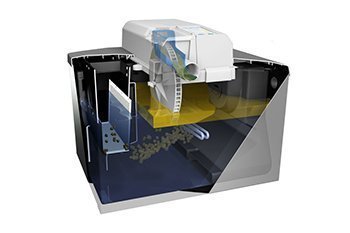One of the most important elements that harm nature is waste oils. However, thanks to the new generation methods developed today, combating waste oils has become easier! One of these methods is the oil-retaining bacteria that provide satisfying results. The use of oil-sparing bacteria, which can also be considered as a biological method, stands out with the fact that it is a much more practical method than purifying waste oils by various mechanisms.

In addition to preventing blockages due to waste oils, it can also eliminate bad odors and makes oil trapping bacteria apart from similar methods, making it a more attractive option for many institutions and organizations. The oil-retaining bacteria continue to work actively 24 hours a day, and waste oils are destroyed before they reach nature.
The function of oil-retaining bacteria is actually due to the breakdown of waste oils. Thanks to the microorganisms in its formula, all of the organic wastes turn into different structures such as carbon dioxide or water. However, there is no change in the biological structure of the bacteria, so the oil-retaining bacteria continue to function in their environment.
However, it is also among the prominent features that the oil-retaining bacteria do not cause any damage to the system in which they are located in the short or long term. The fact that it extends the oil collection period very seriously is also one of the pleasing results of bacterial use. It is not necessary to mention areas such as factory waste or manholes for the use of oil-retaining bacteria. Oil-retaining bacteria, which can be used easily in kitchen and bathroom expenses, are an ideal option especially in the fight against bad odor problems.
It should be noted that the oil-retaining bacteria, also known as "oil-eating bacteria," have an extremely wide range of uses. Depending on the width of the area they are used or the rate of waste oil, there may be a need to reinforce at regular intervals. The benefits of oil-sparing bacteria, which are considered as one of the safest methods with the fact that today does not harm the living creatures, brings with it the increasing usage areas. We can list the most common uses of oil-retaining bacteria as follows: